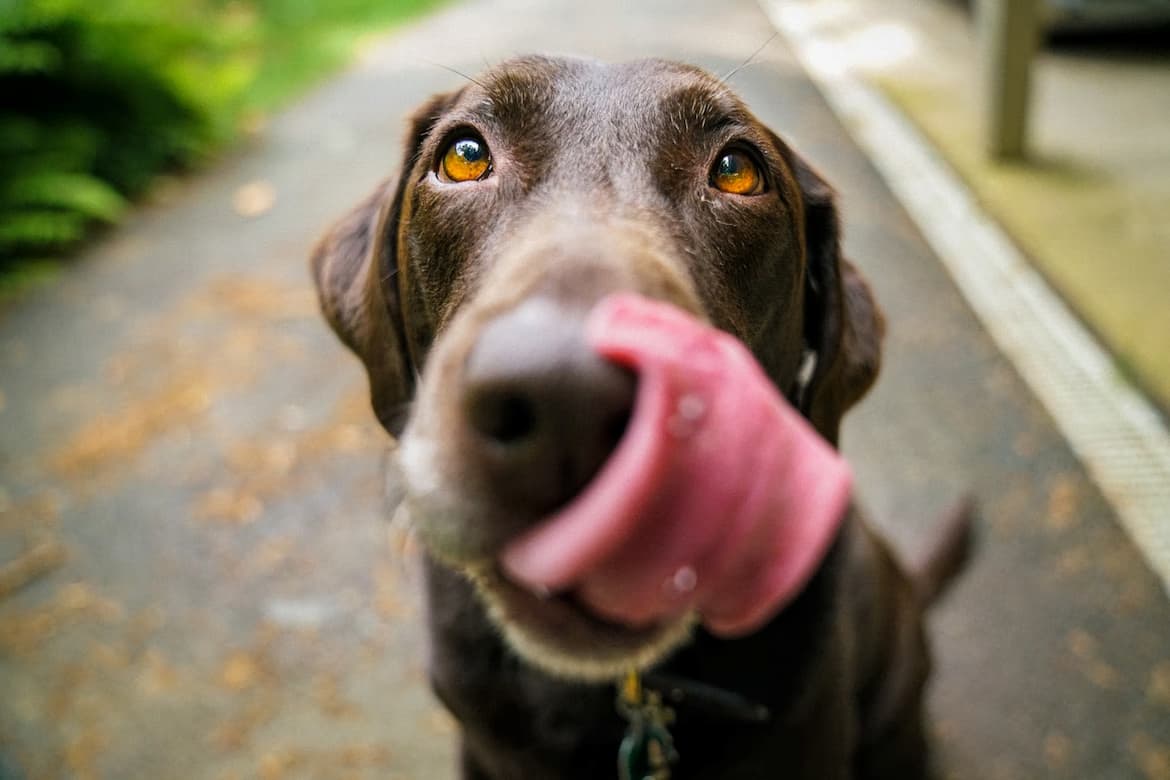Good nutrition ensures proper metabolism in the dog’s body, it becomes strong, resilient, and well resists various types of diseases. With the right nutrition during the long years of life maintains normal performance, high mental activity, vigor and cheerfulness. Therefore, a proper balanced diet is a biological process by which the body maintains material and energy balance.
Remember that proteins are best digested by dogs, followed by carbohydrates and fats. Fibers are not digestible in dogs, so don’t give them too much plant food, especially not raw food. Fats should constitute 5-10% of the dry matter in the diet, depending on the age, exercise and environment of the dog. The amount of plant carbohydrates in the diet should not exceed 1/3 of the dog’s diet.
Feeding natural foods
Meat is the main and preferred component of a dog’s diet. It can be given raw and cooked, but it must be of good quality. Small pieces of raw, lean beef should be given to puppies. Older puppies should be given boiled lamb, horsemeat or boneless boiled chicken meat.
Meat from by-products can be given: liver, kidneys, rumen, heart, lungs, brains, udders, and lips of cattle. Spleen and intestines are not desirable to give in principle. Feed them to the dog only as a last resort and only well-cooked. Stuffing should not be given, because the small particles may not be sufficiently processed in the stomach, which can lead to intestinal disorders. Also pork should not be given – it is too fatty and may be infected with worms. Poultry meat, on the other hand, is dietary and very good for your dog. Mild broths must not be given as such, but they can be used to make porridges and rich vegetable soups with the addition of cereals. Adult dogs are given 400-600 grams of meat, while males and puppies up to 800 grams per day.
Seafood and fish are the main source of phosphorus for dogs. Meat products can be replaced with fish products from 4 months of age. River fish should not be given to avoid worm diseases. Saltwater fish should be given after the fish has been cleaned of entrails and scales. Preferably boiled. As a supplement, you can use a protein and fat-rich fish meal.
Vegetables can be given both raw and boiled. Cabbage, beets, grated carrots with sunflower oil. Fresh tomatoes and tomato juice are good for the dog. Potatoes are strictly forbidden for dogs because of their absolute indigestibility. Sometimes boiled pumpkin is added to porridge as a worm repellent. Many dogs love fruit – apples, pears, apricots, seedless berries, bananas. Allergies are possible for citrus fruits.
Cereals – wholemeal, oatmeal, buckwheat, rice. It is not necessary to boil wholemeal, you can simply pour hot water or broth and let it stand. Less desirable are pearl barley and barley. Porridge is boiled in medium-strength broths or milk. When cooking with water it is necessary to add meat, fish and vegetables.
Dairy products are one of the main sources of calcium for dogs. Whole milk can be given up to two months. Goat milk is very useful, it is 1.5 times fatter than cow’s milk, and in its nutritional and mineral composition is close to the bitch milk of dogs. But in some cases, dairy products – especially milk – can cause digestive upset! (This occurs because of the lack of enzymes that are produced as the dog grows up, and if for some reason these enzymes are not developed in an adult dog, it does not digest dairy products). Kefir, cottage cheese (not very fatty), sour milk, yogurt (non-fruit) – can be given daily. These are very valuable foods that are well digested by the dog’s body. Sometimes it is useful to give cheese.
It is strictly forbidden to give butter.
Once a week raw egg is added to the dog’s food, it is especially useful for sick animals and producers before mating.
Calcium gluconate and lactate, chalk, fish oil, crushed eggshells, dry beer yeast should also be added to the dog’s food. Every two weeks once a day you should give your dog small doses of garlic (as a prophylactic against worms), as well as honey and nuts, if the dog likes.
Try to feed your dog at the same time. When feeding natural foods, it is very important to keep the right ratio of calcium to phosphorus, it should be 2:1.
Golden rules of dog nutrition:
- Feed your dog at the same time.
- Food, in its consistency, should be thick. Food that is too liquid can lead to disturbed and upset digestion.
- The food should be warm.
- After eating, the dog should rest for about 2 hours to digest the food. Never feed your dog before work or a walk – it is fraught with danger and can lead to vomiting!
- Your dog should have easy access to fresh water.
The article was prepared for you by Jeff Vertes, the author of bestcasinosincanada.net

Write Reviews
Leave a Comment
No Comments & Reviews